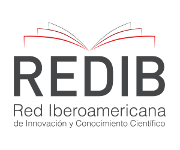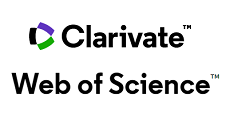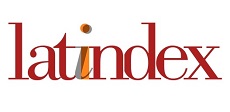
Published
Understanding How Software Project Managers Learn Using Kolb's Learning Style Inventory
Entendiendo cómo aprenden los gestores de proyectos de software mediante el inventario de estilos de aprendizaje de Kolb
DOI:
https://doi.org/10.15446/ing.investig.115837Keywords:
Software Engineering Education, Project Managers, Continuing Education, Learning Styles, Kolb's Learning Styles Inventory (en)Educación para la Ingeniería de Software, Gestores de Proyecto, Educación Continua, Estilos de Aprendizaje, Inventario de estilos de aprendizaje de Kolb (es)
Downloads
Teaching project managers involves conveying complex concepts in an accessible manner while fostering strategic thinking and promoting problem-solving skills using specific methodologies. Additionally, continuing education requires techniques for meaningful learning that balance theory with practice and build upon professional experience. However, unlike other software development roles, little is understood about how software project managers (SPMs) can learn effectively. Therefore, this research aimed to identify teaching techniques that better align with SPMs' learning styles. Kolb's learning styles test was administered to 27 project managers to determine their preferences in this regard. The surveyed SPMs leaned towards abstract conceptualization, exhibiting a balance between active experimentation and reflective observation, with the thinking style best reflecting these preferences. Building on this, some SPM-centered teaching guides were adapted from existing knowledge on teaching professionals with Kolb's thinking learning style.
Enseñar a los gestores de proyectos implica transmitir conceptos complejos de manera accesible, fomentando el pensamiento estratégico y promoviendo habilidades de resolución de problemas mediante metodologías específicas. Además, la educación continua requiere técnicas de aprendizaje significativo que brinden un balance entre la teoría y la práctica y construyan sobre la experiencia profesional. Sin embargo, a diferencia de otros roles en el desarrollo de software, existe un conocimiento limitado sobre la manera en que los gestores de proyecto de software (SPMs) aprenden de manera efectiva. Por ende, esta investigación tuvo como objetivo identificar las técnicas de enseñanza que mejor se alineen con los estilos de aprendizaje de los SPMs. Se aplicó la prueba de estilos de aprendizaje de Kolb a 27 gestores de proyecto para determinar sus preferencias en este aspecto. Los SPMs encuestados se inclinaron hacia la conceptualización abstracta, presentando un balance entre la experimentación activa y la observación reflexiva. El estilo thinking fue el que mejor representó estas preferencias. Con base en esto se adaptaron algunas guías de enseñanza centradas en SPMs a partir del conocimiento existente sobre la enseñanza para profesionales con el estilo de aprendizaje thinking de Kolb.
References
[1] S. Al-Saqqa, S. Sawalha, and H. AbdelNabi, "Agile software development: Methodologies and trends," Int. J. Interact. Mobile Tech., vol. 14, no. 11, pp. 246-270, 2020. https://doi.org/10.3991/ijim.v14i11.13269
[2] S. Atanasijevic, M. Zahar, D. Rancic, T. Atanasijevic, and M. Dordevié, "Creating an educational framework for project managers at a software company: A sample approach," in Proc. Int. Sci. Conf. - Sinteza 2023, 2023, pp. 199-205. https://doi.org/10.15308/Sinteza-2023-199-205
[3] S. Atanasijevic, M. Zahar, D. Rancic, I. Vulic, and T. Atanasijevic, "Enabling digital growth through continuous education of project managers: A framework for collaborative, complementary, sustained, and simultaneous learning in software engineering organizations," Vojnotehnicki Glasnik, vol. 71, no. 4, pp. 1172-1197, 2023. https://scindeks-clanci.ceon.rs/data/ipdf/0042-8469/2023/0042-84692304172A.pdf DOI: https://doi.org/10.5937/vojtehg71-46100
[4] K. Ayas, "Learning through projects: Meeting the implementation challenge," J. Eur. Ind. Train., vol. 22, no. 3, pp. 89-98, 1998. DOI: https://doi.org/10.1007/978-1-4615-5691-6_9
[5] C. Boiangiu, A. C. Firculescu, and I. Bucur, "Teaching software project management: The independent approach," Romanian Economic Business Review, vol. 10, no. 1, pp. 11-22, 2016. https://ideas.repec.org/a/rau/journl/v10y2016i1p11-22.html
[6] C. Caulfield, D. Veal, and S. Maj, "Teaching software engineering project management - A novel approach for software engineering programs," Math. Models Methods Appl. Sci., vol. 5, art. 87, 2011. https://doi.org/10.5539/mas.v5n5p87
[7].P. Chen and Y.-C. Chan, "Enhancing creative problem solving in postgraduate courses of education management us-ing project-based learning," Int. J. High. Educ., vol. 10, no. 6, art. 11, 2021. https://doi.org/10.5430/IJHE.V10N6P11
[8].S. Christov and M. E. Hoffman, "Experiential learning of software project management and software development via course collaboration," in Proc. 50th ACM Tech. Symp. Comput. Sci. Educ., 2019, pp. 160-166. https://doi.org/10.1145/3287324.3287457
[9]. A. Davis, "Fifteen principles of software engineering," IEEE Softw., vol. 11, pp. 94-96, 1994. DOI: https://doi.org/10.1109/52.329409
[10]. A. Ellahi, Y. Javed, M. F. Jan, and Z. Sultan, "Determining the effect of software project managers’ skills on work performance," Int. J. Inf. Technol. Proj. Manag., vol. 15, no. 1, pp. 1-20, 2023. https://dx.doi.org/10.4018/IJITPM.333620
[11]. R. Fairley, Managing and leading software projects. Hoboken, NJ, USA: Wiley, 2009.
[12]. M. Farooq, U. Omer, and R. Tahseen, "Software project management education: A systematic review," J. Inf. Syst. Oper. Manag., vol. 9, no. 3, pp. 102-119, 2021. http://dx.doi.org/10.21015/vtse.v9i3.702
[13]. M. Felderer and G. H. Travassos, "Contemporary empirical methods in software engineering," Contemp. Empir. Methods Softw. Eng., 2020. [Online]. Available: https://api.semanticscholar.org/CorpusID:221346139 DOI: https://doi.org/10.1007/978-3-030-32489-6
[14]. R. Garcia, C. Treude, and A. Valentine, "Application of collaborative learning paradigms within software engineering education: A systematic mapping study," in Proc. 55th ACM Tech. Symp. Comput. Sci. Educ., Portland, OR, USA, 2024, pp. 366-372. https://doi.org/10.1145/3626252.3630780
[15]. G. Gonçalves, R. Meneses, J. Faria, and R. M. Vidal, "A living lab for professional skills development in software engineering management at U.Porto," in Proc. 2020 IEEE Global Eng. Educ. Conf. (EDUCON), 2020, pp. 1079-1085. https://doi.org/10.1109/EDUCON45650.2020.9125099
[16]. G. Gregoriou, K. Kirytopoulos, and C. Kyriklidis, "Project management educational software (ProMES)," Comput. Appl. Eng. Educ., vol. 21, pp. 46-59, 2013. https://doi.org/10.1002/cae.20450
[17]. J. Jurison, "Software project management: The manager’s view," Commun. Assoc. Inf. Syst., vol. 2, art. 17, 1999. DOI: https://doi.org/10.17705/1CAIS.00217
[18]. D. Kolb and A. Kolb, The Kolb Learning Style Inventory 4.0: Guide to Theory, Psychometrics, Research & Applications, 2013. [Online]. Available: https://learningfromexperience.com/research-library/the-kolb-learning-style-inventory-4-0/
[19]. S. Kumari, "Visual modeling: ‘Unlocking ideas and enhancing understanding: The power of visual modeling,’" Int. J. Eng. Technol., vol. 12, no. 2, pp. 20-25, 2023. https://doi.org/10.14419/ijet.v12i2.32334
[20]. M. Mantyla, M. Jørgensen, P. Ralph, and H. Erdogmus, "Guest editorial for special section on success and failure in software engineering," Empir. Softw. Eng., vol. 22, pp. 2281-2297, 2017. https://doi.org/10.1007/s10664-017-9505-5
[21]. A. Moreno, M. I. Sánchez Segura, F. Medina-Dominguez, L. Peters, and J. Araujo, "Enriching traditional software engineering curricula with software project management knowledge," in Proc. 2016 IEEE/ACM 38th Int. Conf. Softw. Eng. Companion (ICSE-C), 2016, pp. 404-411. https://ieeexplore.ieee.org/document/7883326 DOI: https://doi.org/10.1145/2889160.2889193
[22]. S. H. Ow, "Improving soft skills of university students through software development team projects," Asian Soc. Sci., vol. 4, art. 135, 2009. DOI: https://doi.org/10.5539/ass.v4n4p135
[23]. B. Pérez and A. Rubio, "A project-based learning approach for enhancing learning skills and motivation in software engineering," in Proc. 51st ACM Tech. Symp. Comput. Sci. Educ., 2020, pp. 309-315. https://doi.org/10.1145/3328778.3366891
[24]. L. Peters and A. Moreno, "Educating software engineering managers - revisited: What software project managers need to know today," in Proc. 2015 IEEE/ACM 37th IEEE Int. Conf. Softw. Eng., vol. 2, 2015, pp. 353-359. https://doi.org/10.1109/ICSE.2015.168
[25]. P. Ralph, "Re-imagining a course in software project management," in Proc. 2018 IEEE/ACM 40th Int. Conf. Softw. Eng. Softw. Eng. Educ. Train. (ICSE-SEET), 2018, pp. 116-125. https://doi.org/10.1145/3183377.3183379
[26]. A. H. Reed and M. Angolia, eds., The value of simulation for learning project management. Hershey, PA, USA: IGI Global Scientific Publishing, 2021. https://doi.org/10.4018/978-1-5225-3471-6.CH002
[27]. G. Ruhe and C. Wohlin, Software project management in a changing world. Berlin, Germany: Springer, 2014. DOI: https://doi.org/10.1007/978-3-642-55035-5
[28]. W. Scacchi, "Managing software engineering projects: A social analysis," IEEE Trans. Softw. Eng., vol. SE-10, no. 1, pp. 49-59, 1984. https://doi.org/10.1109/TSE.1984.5010198
[29]. M. Shaw, "Software engineering education: A roadmap," in Proc. Conf. The Future of Software Engineering, 2000, pp. 371-380. DOI: https://doi.org/10.1145/336512.336592
[30]. A. Sukhoo, A. Barnard, M. Eloff, J. Van der Poll, and M. Motah, "Accommodating soft skills in software project management," Issues Inform. Sci. Inf. Technol., vol. 2, pp. 691-703, 2005. https://doi.org/10.28945/860
[31]. H. W. Thompson, R. Mera, and C. Prasad, "A description of the appropriate use of Student’s t-test," Nut. Neurosci., vol. 1, no. 2, pp. 165-172, 1998. DOI: https://doi.org/10.1080/1028415X.1998.11747226
[32]. O. L. Vega-Marquez, J. Chavarriaga, M. Linares-Vasquez, and M. E. Sanchez, "Requirements comprehension using BPMN: An empirical study," in Empirical Studies on the Development of Executable Business Processes, 2019. https://doi.org/10.1007/978-3-030-17666-2_5
[33]. V. Stiehl, M. Danei, J. Elliott, M. Heiler, and T. Kerwien, “Effectively and efficiently implementing complex business processes: A case study," in Empirical studies on the development of executable business processes, D. Lubke and C. Pautasso, Eds. Cham, Switzerland: Springer, 2019, pp. 33-57. https://doi.org/10.1007/978-3-030-17666-2_3
[34]. B. Wu, "Modeling software maturity: A knowledge accumulation and continuous improvement approach," in 2012 3rd Int. Conf. Intell. Cont. Info. Proc., 2012, pp. 739-743. DOI: https://doi.org/10.1109/ICICIP.2012.6391522
[35]. H. Zhou, Y. Zhu, J. Wan, and Q. Wang, "Exploration of teaching mode of software project management based on engineering education professional certification," J. Educ. Human. Soc. Sci., vol. 6, pp. 160-164, 2022. https://doi.org/10.54097/ehss.v6i.4418
How to Cite
APA
ACM
ACS
ABNT
Chicago
Harvard
IEEE
MLA
Turabian
Vancouver
Download Citation
CrossRef Cited-by
Dimensions
PlumX
Article abstract page views
Downloads
Funding data
-
Universidad Técnica Federico Santa María
Grant numbers PIIC-USM 062/2023
License
Copyright (c) 2025 Mauricio Hidalgo, Laura M. Castro, Hernán Astudillo

This work is licensed under a Creative Commons Attribution 4.0 International License.
The authors or holders of the copyright for each article hereby confer exclusive, limited and free authorization on the Universidad Nacional de Colombia's journal Ingeniería e Investigación concerning the aforementioned article which, once it has been evaluated and approved, will be submitted for publication, in line with the following items:
1. The version which has been corrected according to the evaluators' suggestions will be remitted and it will be made clear whether the aforementioned article is an unedited document regarding which the rights to be authorized are held and total responsibility will be assumed by the authors for the content of the work being submitted to Ingeniería e Investigación, the Universidad Nacional de Colombia and third-parties;
2. The authorization conferred on the journal will come into force from the date on which it is included in the respective volume and issue of Ingeniería e Investigación in the Open Journal Systems and on the journal's main page (https://revistas.unal.edu.co/index.php/ingeinv), as well as in different databases and indices in which the publication is indexed;
3. The authors authorize the Universidad Nacional de Colombia's journal Ingeniería e Investigación to publish the document in whatever required format (printed, digital, electronic or whatsoever known or yet to be discovered form) and authorize Ingeniería e Investigación to include the work in any indices and/or search engines deemed necessary for promoting its diffusion;
4. The authors accept that such authorization is given free of charge and they, therefore, waive any right to receive remuneration from the publication, distribution, public communication and any use whatsoever referred to in the terms of this authorization.


























